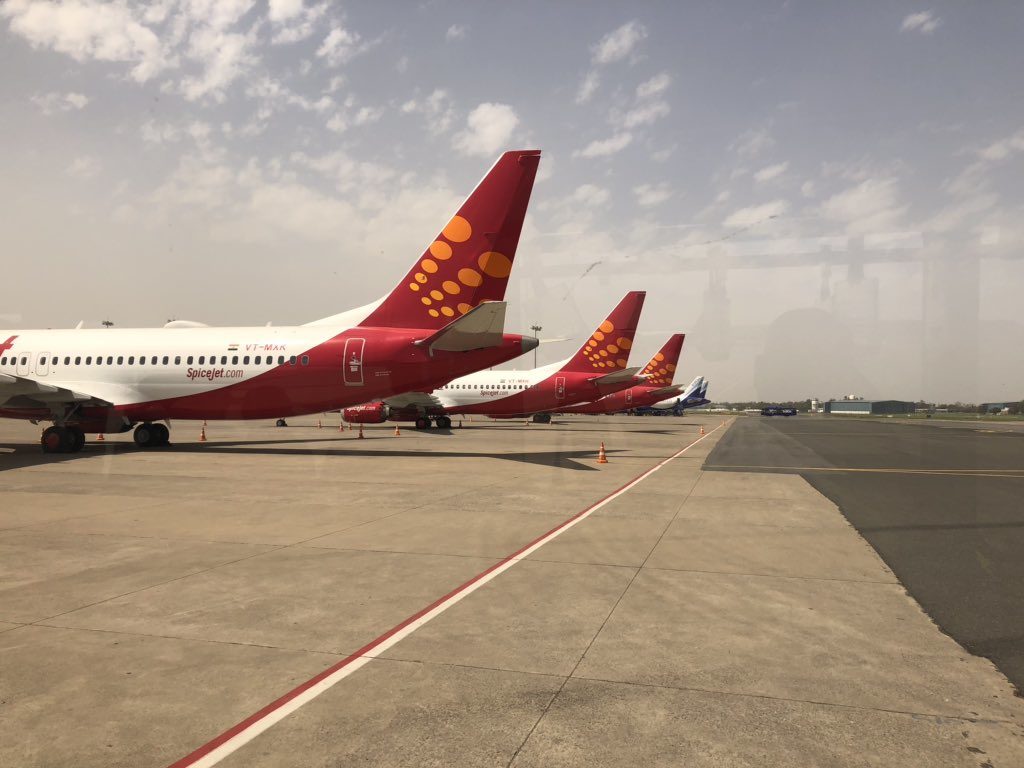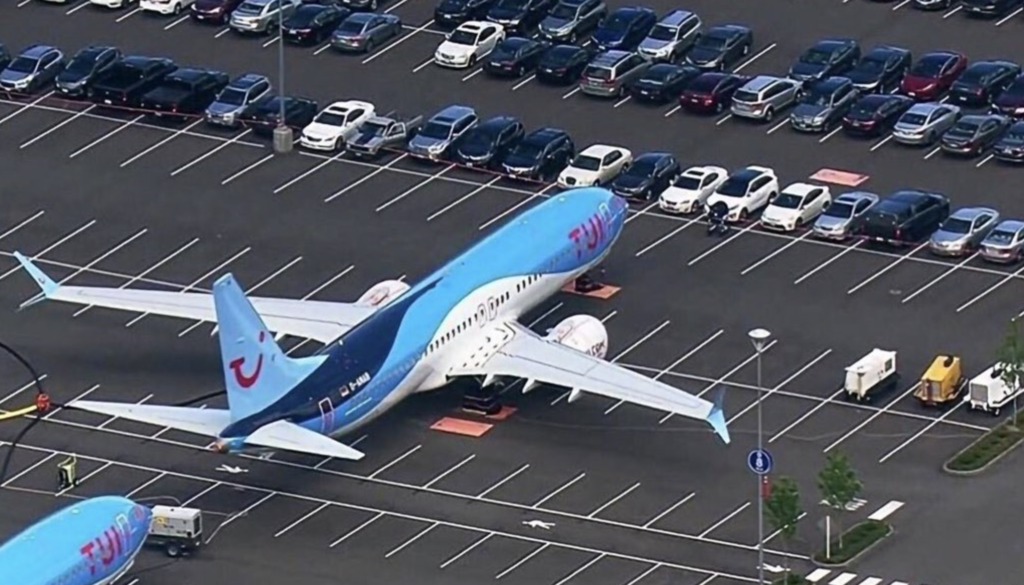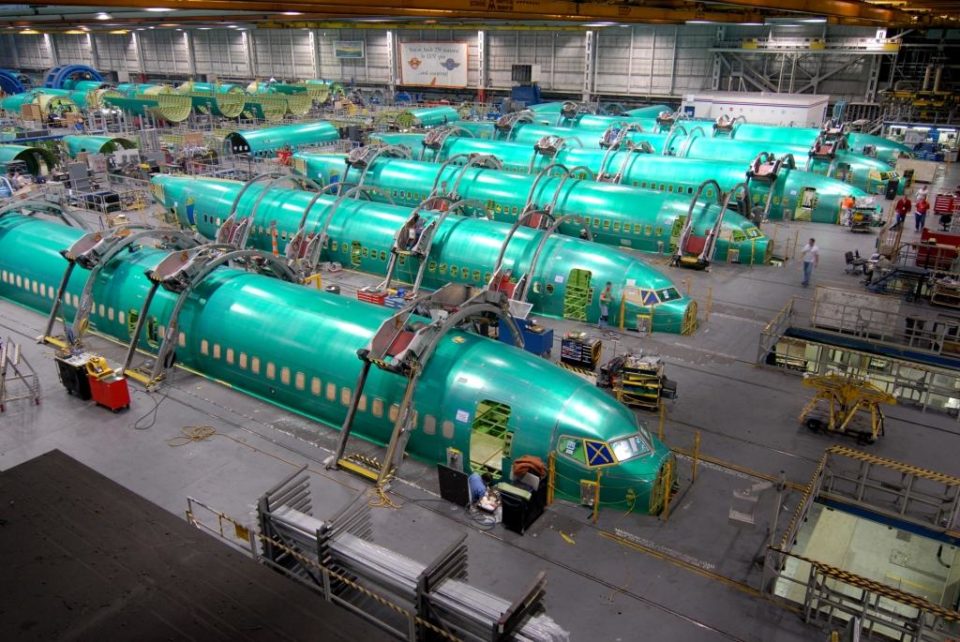The Boeing 737 MAX aircraft, the newest update of the popular Boeing 737 aircraft, has been grounded since March 2019, after two successive plane crashes where unfortunately no one survived. The global grounding also affected SpiceJet closer home, which has 13 737 MAX aircraft in their fleet and had hundreds on order.

Despite the grounding of the aircraft, where Boeing was required to fix the very aggressive MCAS computer programme which pitched the nose of the aircraft down, Boeing continued to produce the aircraft. And they produced about 400 of them since March 2019 at an average of about 42 a month. At this point in time, the airframe maker has manufactured so many 737 MAX airframes to deliver, that they have been parking them across the employee parking lots.

A lot goes into assembling an aircraft, and Boeing depends on many suppliers across the globe to provide them everything from a door to the fuselage to the nuts and bolts that bring the aircraft together. The timeline for the aircraft’s re-entry into service has been a shifting one, with Boeing working with very optimistic timelines but being given pushback by the FAA this past week, who said as much as, “the administrator wants to directly address the perception that some of Boeing’s public statements have been designed to force FAA into taking quicker action.”
Boeing’s stance in the past was that they wanted to continue to assemble as many aircraft as possible so that they could deliver them when the aircraft re-entered service. Perhaps this was also Boeing trying to act normal in the face of this crisis. If you notice the change in the tone of Boeing Commercial Airplanes since the start of this grounding, you will know how things have changed for the aircraft manufacturer over the months.
March 11 "The #737MAX is a safe airplane…"
March 13 "Boeing continues to have full confidence in the safety of the 737 MAX"
March 18 "…we're taking actions to fully ensure the safety of the 737 MAX"
December 16: "Safely returning the 737 MAX to service is our top priority"
— Jason Rabinowitz (@AirlineFlyer) December 16, 2019
The option to suspend production was always on the table but never exercised. But after last week’s announcements, Boeing’s Board went back into a huddle, and over a two-day meeting came the decision to suspend production of the aircraft.
Boeing suspends 737 MAX Production
Boeing put out a decision early this morning that they have decided to suspend the 737 MAX production in January 2020. The three talking points as per Boeing on this move are:
We believe this decision is least disruptive to maintaining long-term production system and supply chain health. This decision is driven by a number of factors, including the extension of certification into 2020, the uncertainty about the timing and conditions of return to service and global training approvals, and the importance of ensuring that we can prioritize the delivery of stored aircraft. We will continue to assess our progress towards return to service milestones and make determinations about resuming production and deliveries accordingly.
Boeing’s plan also states that the aircraft manufacturer will not lay off any people and that the affected employees will continue 737-related work, or be temporarily assigned to other teams in Puget Sound. Some 12,000 employees work on the Boeing 737 Assembly line and associated functions for Boeing. Boeing did not make any comment on the financial impact of the move, and we will have to wait till January 2020 to hear about the impact on Boeing with this move.
Boeing was anyways supposed to have a week-long closure of the facility from December 24, 2019, through January 1, 2020, and this closure will follow after, from an unstated date in January 2020.
Boeing Suppliers in a Limbo

What do you make of the move to shut down the 737 MAX production temporarily for Boeing and its customers?


Boeing’s attitude towards safety is getting increasingly alarming. The 737 max seems to be only the tip of the iceberg. The 777x failed a pressure test and it seems the recently manufactured 787s are now without a critical lightning protection mechanism. It is quite clear that being is playing on probabilities and using every opportunity to cut costs.
Unfortunately they seem hellbent on digging their own grave and are missing critical opportunities. It’s no secret that the A320 neo has gained a huge amount of traction but moreover their long haul business is under threat. Boeing’s sluggish response to the 757 and 767 replacements is case in point. Instead of coming up with a replacement in time, they chose to push their expensive 787s instead.
The end result: Airbus has stolen a March over them with the A321xlr which directly addresses the 757 market. With the Boeing nma indefinitely delayed due to the 737 max crisis and 777x mishaps, Airbus is taking full advantage of carriers desperate to replace their ageing fleets.
The 777x delays has also benefited the A350-1000 which is fast beating the 777x- Qantas being the latest covert. Moreover the 350s reliability and operating performance appears to be outperforming the 787 leading to them winning critical orders as Boeing is completely inundated with one crisis after the other.
Boeing needs to get its act together first or risk losing its entire market to Airbus.